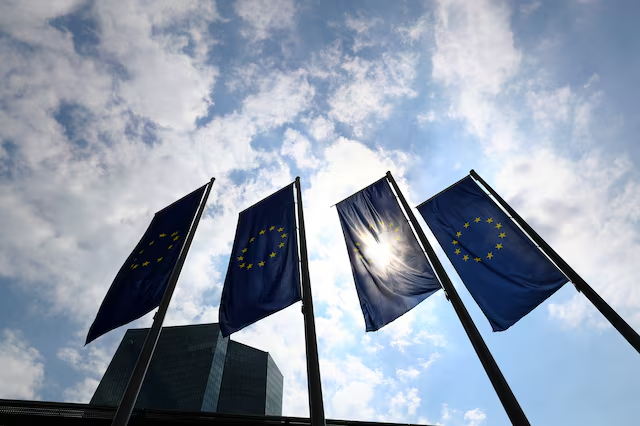The European Central Bank (ECB) is pushing forward with plans to create a digital euro, aiming to reach a political consensus on the initiative by early 2026. This timeline marks a significant milestone for a project that has been years in the making, amid growing calls to strengthen the European Union’s financial independence from U.S.-dominated payment systems and respond to fast-changing global geopolitics.
ECB Executive Board member Piero Cipollone stated on Wednesday that the bank hopes to finalize the necessary legislative agreement by early next year. If successful, the ECB would then require another two to three years to roll out the digital currency across the eurozone. The proposed timeline would put the digital euro on course to become one of the most significant shifts in the EU’s monetary system since the introduction of the euro itself.
The digital euro, according to ECB officials, would serve as a complement to physical cash, not a replacement. It would be a secure, central bank-issued digital currency designed to give consumers and businesses a way to make payments directly with the ECB, both online and offline. The aim is to create a form of money that mirrors the security and public trust of physical cash but adapts to the demands of a rapidly digitizing world.
One of the driving factors behind the ECB’s push is Europe’s dependence on American financial infrastructure, particularly payment processors like Visa and Mastercard. According to Cipollone and other EU policymakers, this reliance exposes the bloc to strategic vulnerabilities, especially in light of growing economic and political tensions with the United States. The reelection of U.S. President Donald Trump and his administration’s unpredictable stance on global financial issues have further increased pressure on the EU to chart a more autonomous course.
“We want to offer citizens a digital means of payment that is as secure, resilient, and universally accepted as cash,” Cipollone said during a financial forum. He emphasized that the current stage of development is focused on building the legislative and technical frameworks necessary for the project to proceed smoothly once the political green light is secured.
While the ECB’s Governing Council has not yet made a final decision to issue the digital euro, it has already completed two years of research and is now in the “preparation phase.” This includes collaborating with financial institutions, fintech providers, and national governments to ensure a smooth and secure rollout. A test phase with selected users is also expected as part of the next step.
However, the path to implementation is far from straightforward. Achieving political consensus among all EU member states is proving to be a complex challenge. Differences remain over issues such as privacy, user control, and the potential impact on commercial banks. Cipollone expressed optimism that the European Council could reach an agreement by this summer, but he acknowledged that the European Parliament’s legislative process may extend beyond that.
French central bank governor François Villeroy de Galhau echoed the sentiment that the time for delay is over. Speaking at the same event, Villeroy said that the current geopolitical and economic landscape demands decisive action. He pointed to Trump’s reelection and the rising influence of China’s digital yuan as compelling reasons for the EU to accelerate its digital monetary ambitions.
The ECB’s proposed digital currency has faced some skepticism, especially from privacy advocates who worry about state surveillance, and from banks that fear disintermediation. However, Cipollone emphasized that the ECB is designing the digital euro with “privacy by default” and will not allow it to be used for mass surveillance or tracking.
As central banks around the world explore digital currencies, the ECB’s progress on the digital euro is seen as a crucial test case for the future of money in democratic societies. If successful, the digital euro could reshape not only how Europeans pay but also how they understand trust and sovereignty in the digital age.
Source; Reuters


